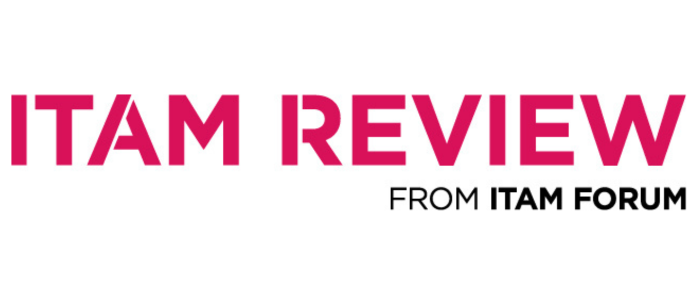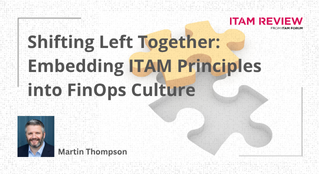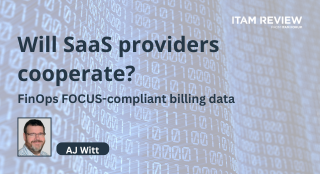Lessons Learned From Previous End User Groups

The week commencing 11th May 2015, we held our first events in New York. The week was re-arranged from the events that were cancelled in January thanks to the Juno storm.
During the week of events, we held a SAM workshop for a number of our readers. Here are the outputs from the workshop, and what was discussed:
Audit Defence
Audit defence and methods of formulating an audit plan seems to be a top priority for SAM departments. We got the impression that some organisations are literately looking over their shoulder, just waiting for the next audit, whereas others are proactively getting their estate in order and increasing their SAM maturity levels. We prefer the latter approach; worrying gets you no-where but being proactive and addressing compliance risks will help towards a positive result post-audit, or at least helping with damage limitation.
Understanding the difference between an ‘audit’ and a ‘review’ has caused a number of problems for our attendee’s. There are no clear differences between what a review and audit are when essentially they are the same thing. It is a way of the software vendor to cause disruption within the organisation and identify possible areas in which they can generate more revenue.
It is important to point out that if you are unsure whether you have received a request for an audit or a review that you ask for external assistance. It may cost your organisation money, but when you consider how painful and resource draining an audit can be it is worth the price.
Audits are one of the biggest revenue generators for software vendors, so we encourage all of our readers to ensure that they are ‘audit ready’ and have a proactive SAM estate. The best form of defence is a good offence, so make sure that your SAM estate is in order, roles and responsibilities defined and a clear audit strategy in place.
SAM Tool Selection
SAM Tool selection was a really hot topic during our end user group. Some attendee’s were currently picking a SAM tool, whereas others had already implemented and were utilizing their SAM technology. We were surprised to hear that some of our attendee’s were not actively part of the process or project for picking the SAM technology that the organisation uses; instead someone chose it with no understanding or knowledge of SAM.
All SAM Tool sales people will say that their solution is the best; it has all the bells and whistles that can help you manage your SAM estate. To a non-SAM professional, being told that you can save X amount on software per year, and you can manage everything really easily, it sounds like a no brainer. What about the SAM professionals, the people using the solution all day, everyday?
SAM professionals can see through the glossy brochures provided by the SAM tool vendors. They know and understand what they are looking for, they know what features they require to successfully manage their SAM estate, and they know which vendors are the biggest risks to their organisations.
The SAM team need to be the ones that make the decision on which SAM tool to pick, based on data and evidence from their own estate, not from a vendor demo. The SAM team need to be assigned the responsibility of conducting the relevant research so they can make an informed decision. If a SAM tool is picked for them, and they don’t agree with the decision or don’t like using the solution, then they will not use it effectively.
Senior Management Support
There seems to be a mix of organisations having really good senior management support, and the senior management ‘understanding SAM’, or there is a complete lack of senior management support and understanding.
For those with a lack of senior management support, they have found getting their SAM project ‘off the ground’ a real challenge. With a lack of an ‘iron fist’ banging the SAM drum, organisations have found that they are talking to a brick wall when it comes to implementing various aspects of SAM.
However, SAM with senior management support appears to be a lot easier to implement and execute. Having someone from the top supporting a SAM ethos helps the SAM team to implement new processes, polices and SAM related actions. It also shows that the organisation are taking SAM seriously as anything related to, or implemented from the top-down is considered an important action to the organisation as a whole.
Moving to new Technologies and Licensing Metrics
Cloud based licensing generated an interesting debate. Some of our attendee’s were big fans of the new license metrics and the ease in which they can manage compliancy. However, they have not been impressed by the likes of Microsoft and Adobe in regards to the advice they provide for keeping on top of true-ups and renewals. There seems to be a lack of support from these vendors in helping customers make the most of their software licenses, and also assistance with the renewal process.
Furthermore, some of the users ended up paying twice for software like Adobe Acrobat, as they believed they had to move it towards the cloud based model. However, this is not the case. If you have Adobe Acrobat XI (Device, perpetual licenses) and you have no plans to upgrade then you can simply keep your existing licenses and NOT move them to the Creative Cloud. This clearly shows a lack of communication and education between the software vendors and their customers, which needs to be improved.
Conclusion
It was a really interesting day with a number of hot topics discussed. We would like to thank everyone that came and took part in our end user group, and hope to see you again in the future!
If you are interested in coming to one of our End User Groups, we will be hosting our next workshop in New York on 19th & 20th October 2015. Click here for more details – We hope to see you there!
Can’t find what you’re looking for?
More from ITAM News & Analysis
-
Broadcom vs Siemens AG - A Brewing Storm
The ongoing legal battle between VMware (under Broadcom ownership) and Siemens is yet another example of why ITAM goes far beyond license compliance and SAM. What might, at first glance, appear to be a licensing dispute, ... -
Shifting Left Together: Embedding ITAM into FinOps Culture
During one of the keynotes at the FinOps X conference in San Diego, JR Storment, Executive Director of the FinOps Foundation, interviewed a senior executive from Salesforce. They discussed the idea of combining the roles of ... -
Addressing the SaaS Data Gap in FinOps FOCUS 2.1
I recently reported on the FinOps Foundation’s inclusion of SaaS and Datacenter in its expanded Cloud+ scope. At that time, I highlighted concerns about getting the myriad SaaS companies to supply FOCUS-compliant billing data. A couple ...
Podcast
ITAM training
Similar Posts
-
Broadcom vs Siemens AG - A Brewing Storm
The ongoing legal battle between VMware (under Broadcom ownership) and Siemens is yet another example of why ITAM goes far beyond license compliance and SAM. What might, at first glance, appear to be a licensing dispute, ... -
Shifting Left Together: Embedding ITAM into FinOps Culture
During one of the keynotes at the FinOps X conference in San Diego, JR Storment, Executive Director of the FinOps Foundation, interviewed a senior executive from Salesforce. They discussed the idea of combining the roles of ... -
Addressing the SaaS Data Gap in FinOps FOCUS 2.1
I recently reported on the FinOps Foundation’s inclusion of SaaS and Datacenter in its expanded Cloud+ scope. At that time, I highlighted concerns about getting the myriad SaaS companies to supply FOCUS-compliant billing data. A couple ... -
The Future of ITAM
As an ITAM Industry Analyst, I’m often asked what ITAM’s future looks like. This can be a tough question to answer because when it comes to the future, there are endless possibilities. Often, it seems, some ...




